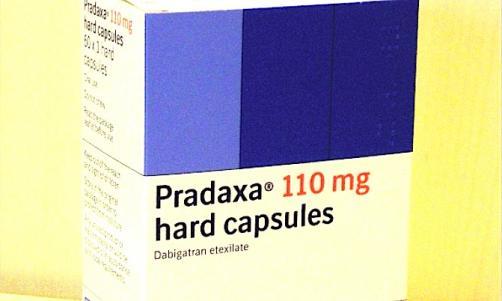
Pradaxa ‘safe’ says Australian regulator
pharmafile | August 6, 2014 | News story | Research and Development, Sales and Marketing | AF, Australia, BMJ, Pradaxa, stroke
Australia’s drug regulator says it will not be updating its safety advice for Boehringer’s Pradaxa despite mounting safety issues around the drug.
In the past five years, there have been 280 deaths and 1,400 adverse drug reactions reported from Pradaxa (dabigatran), with some consumer health groups now calling for a safety review.
Australia’s largest professional organisation for general practitioners has also come out saying that it had concerns about the ‘aggressive marketing tactics’ used by the drug’s manufacturer going as far back as 2010.
This week the Therapeutic Goods Administration (TGA), Australia’s drugs regulator, confirmed that Pradaxa has been associated with deaths, as well as side-effects including internal bleeding and heart attacks.
But the TGA says that there had only been seven deaths from the drug in the four months to April this year, indicating deaths associated with the drug were decreasing as doctors became more familiar with it and how to best prescribe it, and does not believe its label needs updating.
A TGA spokeswoman tells the Guardian that three deaths were associated with warfarin in the same period, although it was not possible to meaningfully compare the numbers of adverse events between warfarin and Pradaxa, as warfarin was a well-established medicine.
“Reporting rates for adverse events of well-established medicines are known to be lower than reporting rates for adverse events for a newer medicine,” she adds.
About 30,000 patients take Pradaxa in Australia, while about 2.7 million scripts are written for warfarin each year.
Big sales, but safety issues continue
Sales of Pradaxa increased by nearly 9% last year to hit €1.2 billion, which makes it a major revenue driver for the company.
The drug is seen as the next generation treatment to follow the off-patent warfarin, as it does not require the same level of dosing adjustments as the 50-year-old pill.
But there have now been hundreds of adverse events involving haemorrhages reported since its launch in 2012, with more than 2,000 US lawsuits put in place against Pradaxa in the last two years.
It has been reported that the firm will pay around $650 million to settle these legal disputes.
In relation to one of these cases, internal company documents released in February by a US court alleges to show that Boehringer attempted to ‘delay and revise’ the publication of important drug information.
Specifically, one study showed that the drug may require closer monitoring by medical staff as more patients were having bleeds than would be expected.
One of the documents showed that Andreas Clemens, a medical team leader for the drug, wrote that he believed this finding was important and should be published – but with revision. “The world is crying for this information, but the tricky part is that we have to tailor the messages smart.”
In another email Clemens expressed concern that the paper ‘could be a liability issue’ for the company. Boehringer did not release the study right away.
The privately-owned German firm has also been fighting new allegations, first made in July by The BMJ, that information about the benefits of monitoring blood levels of Pradaxa – and how this would reduce the risk of major bleeding in patients taking the drug – was not shared with regulators.
Boehringer has fought back in the past week, staging a tweet up around the issues raised by The BMJ questioning whether the journal understood the complexities of its studies, and alleged that the journal was attempting to ‘sensationalise the facts’.
A spokesman for the TGA says that the report in The BMJ had revealed ‘nothing new’ about the drug.
Pradaxa is one of three new oral anticoagulants along with J&J/Bayer’s Xarelto and Pfizer/BMS’s Eliquis that prevent strokes in patients with irregular heart rhythm (known as atrial fibrillation).
The condition affects around 800,000 Britons and more than three million Americans, and raises the risk of stroke by up to five times.
Ben Adams
Related Content

American Heart Association awards $2.1m to research link between migraine, strokes and CVD
The American Heart Association has announced that it will fund seven new scientific research studies …

NHS given guidance on offering genetic testing to stroke patients
The NHS has been given draft guidance on offering gene tests to patients who have …

Australia pauses AstraZeneca vaccine for people under 60
Australia will now only recommend that people over 60 receive the AstraZeneca vaccine due to …








